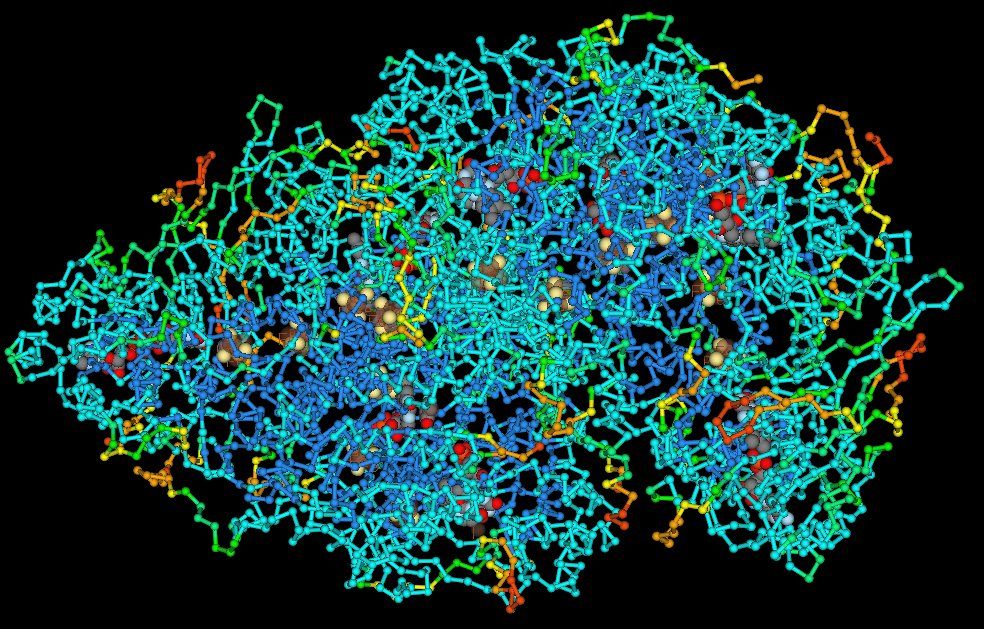Checking Out the Varied Applications and Advantages of Polymers in Different Industries
Polymers, with their varied series of properties and performances, have ended up being vital in numerous sectors, each gaining special advantages from their application. Polymers. From improving security and performance in the automobile industry to transforming medical devices in the healthcare sector, polymers play a crucial duty. Their environment-friendly nature is changing the landscape of sustainability practices. As we dive right into the depths of polymers in electronics, we discover innovative innovations, while their structural stability changes the world of building and facilities. The prevalent impact of polymers across industries is a testament to their adaptability and flexibility, shaping the future of plenty of fields.
Automotive Sector Applications
Polymers play a crucial role in boosting the performance and longevity of different parts within the automotive market. These versatile materials are thoroughly made use of in the manufacturing of various components, ranging from interior elements to under-the-hood applications. One noticeable use polymers in the vehicle sector is in the production of light-weight parts. By changing typical steel parts with polymer-based options, lorries can achieve enhanced fuel performance without endangering on strength or security.

Health Care Market Benefits
In different medical care applications, the benefits of making use of polymers are extensively identified for their varied array of beneficial homes. Polymers play a critical duty in the medical care sector as a result of their convenience, biocompatibility, and cost-effectiveness. Among the main benefits of polymers in health care is their capability to be tailored to particular requirements, such as flexibility, sturdiness, and biodegradability, making them optimal for a wide variety of medical applications.
Polymer-based materials are thoroughly made use of in clinical gadgets, such as catheters, implants, prosthetics, and drug delivery systems, as a result of their biocompatibility and capacity to simulate natural cells. These products can minimize the risk of allergic responses or beings rejected, enhancing patient security and outcomes. In addition, polymers are lightweight, making them suitable for wearable clinical gadgets and guaranteeing patient convenience.
Additionally, polymers allow the growth of innovative therapy methods, such as hydrogels for cells design and nanocomposites for targeted medication distribution. Their convenience of handling and sterilization makes them important for keeping high standards of health in medical care setups. In general, the diverse advantages of polymers add dramatically to improvements in clinical modern technology and client treatment.
Ecological Benefits of Polymers

In addition, polymers can contribute to power savings because of their light-weight nature. In sectors such as transportation, lightweight polymer products can help in reducing fuel usage and greenhouse gas discharges. In addition, polymers can make it possible for the development of energy-efficient products such as insulation products that boost energy conservation in buildings.
Furthermore, polymers play a critical duty in reducing water pollution. The use of polymer-based filtering systems can efficiently remove pollutants and impurities from wastewater, guarding water sources and environments. In general, the environmental advantages of polymers make them beneficial properties in promoting sustainability and environment-friendly methods across various markets.
Polymers in Electronics and Modern Technology
Considering the raising need for innovative and sustainable services in modern-day markets, the integration of innovative polymer innovations in the realm see here of electronic devices and innovation has become a critical strategy for driving performance and performance. Polymers have actually reinvented the electronics market by enabling the manufacturing of lighter, much more adaptable, and resilient digital devices. From smart devices to medical tools, polymers play a vital role in improving item style and capability.
One considerable benefit of polymers in electronics is their protecting homes, which help safeguard fragile electronic elements from ecological elements and electric interference. Furthermore, polymers are vital in the growth of flexible displays, wearable modern technology, and printed electronic devices, supplying unlimited opportunities for developing smart and interconnected devices.
Moreover, using polymers in electronic packaging has caused advancements in miniaturization and thermal management, enhancing the general efficiency and integrity of digital systems. As technology continues to have a peek at these guys develop, the convenience and flexibility of polymers will certainly drive additionally technology in the electronic devices sector, forming the future of modern technology.
Role of Polymers in Construction and Infrastructure
The combination of sophisticated polymer products in building and framework tasks has actually revolutionized the means frameworks are made and constructed in modern-day times. Polymers supply countless benefits in the building and construction sector because of blog their adaptability, longevity, and cost-effectiveness. One vital duty of polymers in building and construction is their usage in finishings and sealants, providing protection versus ecological elements such as moisture, UV radiation, and corrosion. In addition, polymers are made use of in the manufacturing of lightweight and high-strength composite products, boosting the architectural stability of buildings while minimizing overall weight.
In addition, polymers play a critical function in lasting building practices by allowing the development of energy-efficient frameworks. Insulating products made from polymers help control indoor temperature levels, reducing the requirement for home heating and cooling systems and inevitably reducing power consumption. Moreover, the use of polymer-based compounds in infrastructure jobs such as bridges and roadways enhances their durability and lowers maintenance prices. In general, the unification of polymers in construction and facilities displays their significant influence on modern-day design practices.
Conclusion
In verdict, polymers play a critical function in different industries such as automotive, medical care, ecological, electronics, and building and construction. From boosting fuel efficiency in vehicles to boosting medical devices, polymers supply many advantages.